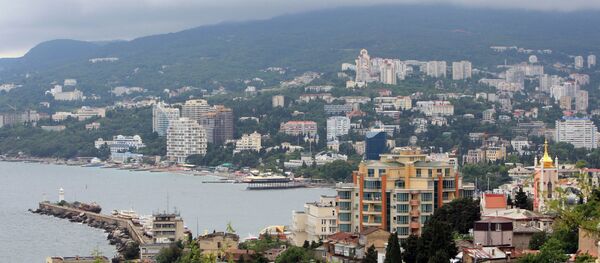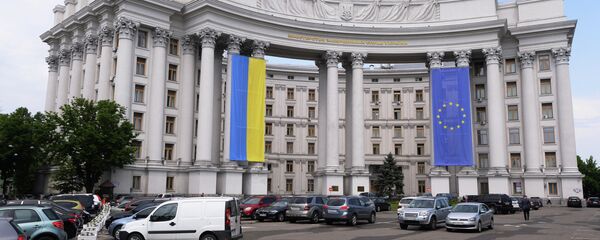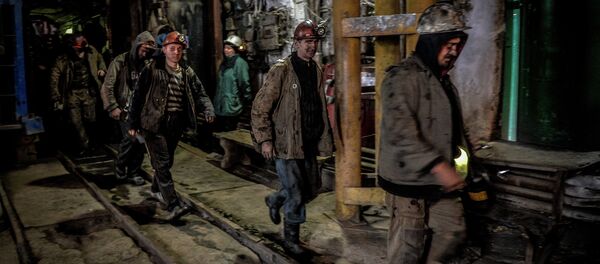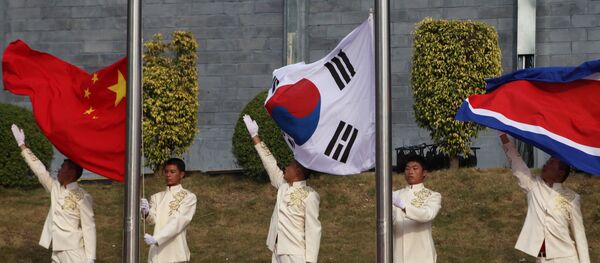On Tuesday, Internal Affairs Minister Arsen Avakov declared that he is creating "a new, unusual project: We will form a special department of the Autonomous Republic of Crimea, taking account of the special functions that this department will take upon itself in connection with the ongoing Russian occupation."
Avakov explained that the new special police department will work in the regions of Odessa and Kherson, and be headed by former Odessa Region police head Ivan Katerinchuk.
This is not the first time Ukrainian authorities have initiated projects to create 'phantom departments' or issue laws and decrees pertaining to the Crimean Republic, which seceded from Ukraine and joined Russia following a referendum last March, in the aftermath of the Maidan coup.
Asked how the prosecutor's office is able to function, if it doesn't have access to its formal zone of responsibility, Holodnitskiyv noted that his staff is sent reports by sources providing them with information, among them journalists and local media. With no contact with the actual prosecutor's office in Simferopol, the Kiev-based phantom prosecutor's office works in the dark attempting to account for crimes which may take place as they are reported.
Last month, the Rada 'renamed' the Simferopol International Airport in honor of Amet-khan Sultan, a legendary Second World War-era fighter pilot and Hero of the Soviet Union. The airport's management simply said they would ignore the decision, saying they weren't consulted, and have no obligation to follow the directives of a foreign government.
A few days later, the Rada passed a law renaming dozens of cities, towns, and districts throughout the country as part of their 'decommunization' initiative, including nine districts in Crimea, which bear names like 'Sovetskiy', 'Lenine', and 'Oktyabrske'. Local authorities have not responded to the initiative.
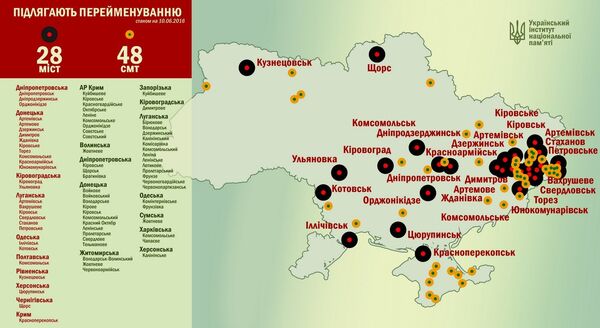
Ukraine isn't the first country to create phantom departments or issue laws and directives for territories it doesn't control. Since the late 1940s, North Korea has had a fully form 'reserve administration' of South Korea, composed of North Korean officials at various levels who, in addition to their existing duties, were charged with administrating territories in the south "after the territory is freed from the yoke of US imperialists and their puppet clique." Only in 1972 did North Korea relinquish its claim that Seoul was the country's capital.
Writing on the Korean phenomenon of phantom ministries back in 2008, Russian Korea specialist Andrei Lankov noted that "nobody takes this seriously anymore, and the whole thing has been turned into an amusing legal fiction. However, it will not be possible to completely abandon these projects, as the fiction is not just a matter of the legislation of both countries, but is firmly frozen into their ideologies. It would be interesting to know whether similar institutions exist anywhere else." Half a decade later, Lankov has his answer. Yes, they exist, in Kiev.

